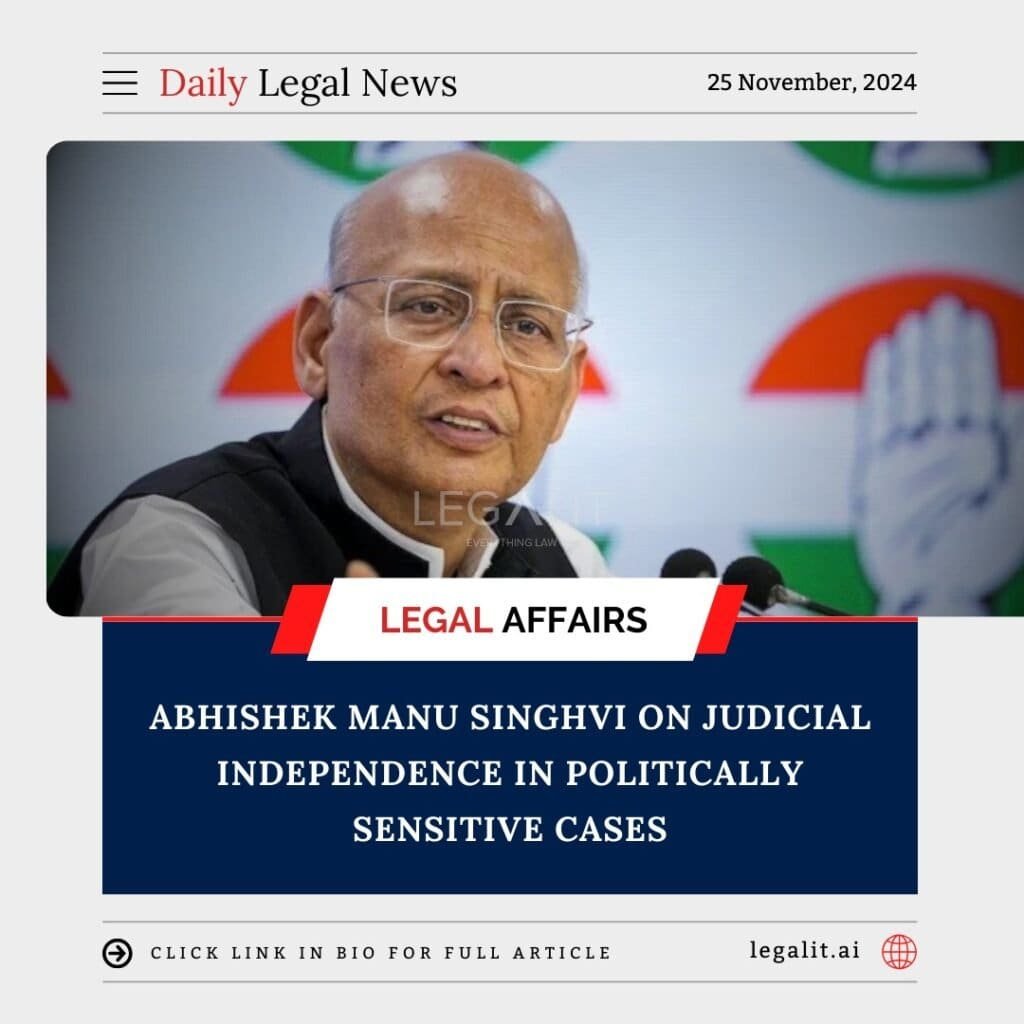
Senior advocate Abhishek Manu Singhvi recently commented on the state of judicial independence in politically sensitive cases, describing it as a “mixed bag.” Speaking at a legal forum, Singhvi highlighted the challenges faced by the judiciary in maintaining impartiality while handling cases with significant political ramifications.
Background:
Judicial independence is a cornerstone of democracy, ensuring that courts function without external pressures or biases. However, cases involving high-profile political figures or issues often test this independence, raising concerns about judicial objectivity and the perception of fairness.
Singhvi’s Observations:
Singhvi noted that while the judiciary has demonstrated remarkable integrity and courage in several instances, there have also been occasions where its decisions have attracted criticism for alleged bias or political influence. He emphasized that such cases put the institution’s credibility at stake, affecting public trust in the justice system. Singhvi further underscored the importance of transparency and accountability to reinforce the judiciary’s autonomy.
Broader Implications:
Singhvi’s remarks come amidst ongoing debates about judicial appointments, collegium reforms, and the judiciary’s role in politically charged environments. He stressed that safeguarding judicial independence is essential not just for the legal system but for upholding democratic principles.
Conclusion:
Abhishek Manu Singhvi’s insights draw attention to the judiciary’s delicate balancing act in politically sensitive cases. His call for vigilance and reform serves as a reminder that an independent judiciary is vital for ensuring justice and maintaining public confidence in democratic institutions.